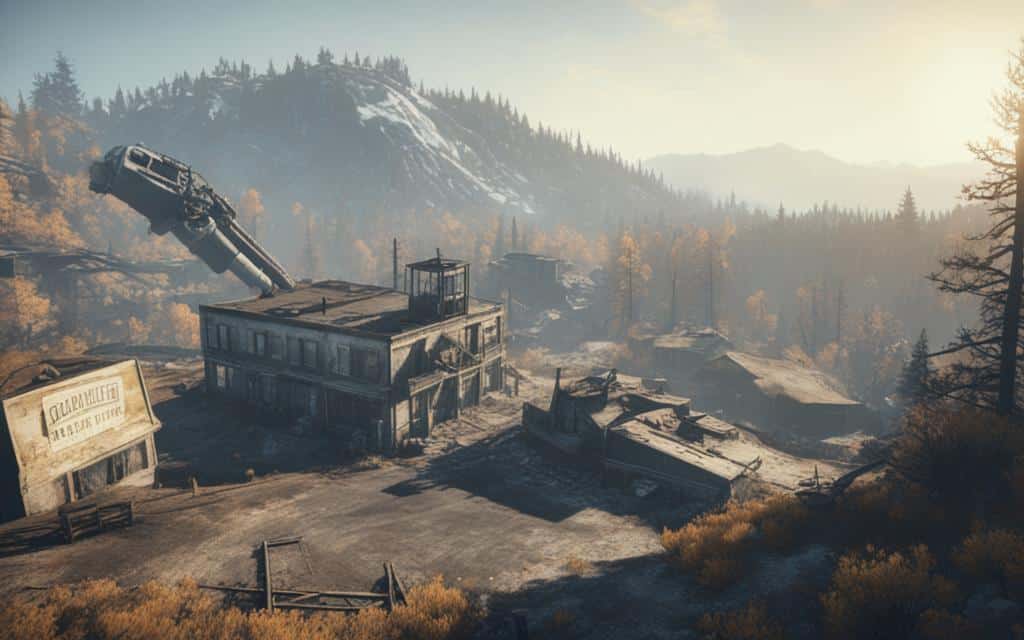Table of Contents
Welcome to our deep dive into the captivating and complex lore of the Fallout series. In this article, we will be delving into the question of Fallout 76’s canon status, its impact on future games, the changes and contradictions in the Fallout lore, and how it all comes together to shape the immersive world we love.
When discussing Fallout lore, it’s essential to understand the concept of canon. The Fallout canon comprises the official works recognized by Bethesda Softworks, the current rights holder. It includes all the released games in the series, including Fallout, Fallout 2, Fallout 3, Fallout: New Vegas, Fallout 4, and of course, Fallout 76. These games serve as the binding sources for developers and take precedence over non-game sources.
However, alongside these games, there are supplementary sources that provide additional information on the Fallout universe. These include game manuals, strategy guides, and developer commentary. While not binding, they offer valuable insights into the lore and enable a deeper understanding of the world of Fallout.
Fallout 76 holds a unique place within the Fallout canon. As the most recent release, it not only contributes to the established lore but also introduces new elements to the series. Its impact on future games cannot be understated, as the events and characters introduced in Fallout 76 have the potential to shape the stories and themes of upcoming titles.
Join us as we explore the intricate web of the Fallout lore, uncovering its nuances, and embracing the ever-evolving nature of this extraordinary universe. Let us embark on this journey together, passionate fans and curious wastelanders alike, to unravel the mysteries of Fallout 76 and its place within the rich tapestry of the Fallout series.
Fallout 76’s Impact on Future Games
Fallout 76, as the most recent release in the series, has the potential to greatly influence future games within the Fallout universe. Set just 25 years after the devastating nuclear war, Fallout 76 explores the early aftermath and the struggles faced by the survivors. This unique setting and timeline allow for the introduction of new elements that could shape the lore of future titles in the series.
“Elements introduced in Fallout 76, such as the nuclear warfare and the presence of the Scorched, could carry forward into future games.”
One of the significant additions in Fallout 76 is the presence of nuclear warfare, with players navigating through a world ravaged by the immediate aftermath of the bombs. This introduction not only provides an immersive experience for players but also opens up possibilities for exploring the consequences of nuclear war in future games. The inclusion of the Scorched, a new enemy faction born from the radiation and chaos, further expands the potential storylines and challenges that could be explored in the upcoming Fallout titles.
Furthermore, Fallout 76’s expansions have brought back NPCs and introduced new factions, such as the Secret Service and the Brotherhood of Steel. These expansions have the potential to leave a lasting impact on the future games, as they introduce new storylines, quests, and dynamic interactions with these factions. The presence of the Responders, another significant faction in Fallout 76, could also have repercussions in Fallout 5 and other upcoming titles.
The Potential Future Impact of Fallout 76 Expansions:
| Expansion | Major Additions |
|---|---|
| Wastelanders |
– NPCs return to the game, adding depth to the world – Introduction of the Secret Service faction – Expanded storylines and quests |
| Brotherhood of Steel |
– Inclusion of the iconic Brotherhood of Steel faction – New quests, weapons, and armor related to the Brotherhood |
| Responders |
– Exploration of the Responders faction and their contributions to rebuilding society – Potential interactions with the Responders in future games |
With the introduction of these expansions and the rich lore they bring, Fallout 76 sets the stage for exciting possibilities in future games within the Fallout series. The game’s impact on the evolving lore and storyline highlights the ever-changing nature of the Fallout universe, ensuring that each new installment brings fresh experiences to fans and players alike.
Changes and Contradictions in the Fallout Lore
The Fallout series has undergone various changes and revisions to its lore with each new game, leading to additions or even contradictions of established lore. While some may interpret these changes as artistic license, others view them as canon revisions that retcon the lore. It is essential to understand that each game in the series is set several years after its predecessor, allowing for the evolution of knowledge, tradition, technology, and nature within the wasteland.
The wasteland itself is vast and diverse, characterized by varying flora, fauna, and cultural differences. The ravages of radiation and decay can also impact communication and recorded history. As a result, the changes in the Fallout lore should be evaluated from an academic standpoint, recognizing that they form a part of history in the making.
“The only constant in the wasteland is change. Existing lore may be challenged, expanded, or overwritten. Embrace the contradictions, for they reflect the unpredictable nature of a post-apocalyptic world.” – Elder Maxson
The role of The Vault, an esteemed encyclopedia for the Fallout universe, is to meticulously record and catalog these changes throughout the series. By doing so, The Vault ensures that wastelanders have access to accurate information, helping them navigate the ever-evolving landscape and understand the intricate tapestry of Fallout lore.
Conclusion
Fallout 76 has left an indelible mark on the expansive lore of the Fallout universe. As a canonical installment, it holds immense significance, providing a fresh perspective on the post-apocalyptic world we have come to know and love. Through the game’s immersive storytelling and engaging gameplay, Fallout 76 introduces new elements that enrich the lore and captivate players.
While the canon sources remain the primary reference for the developers, supplementary sources like game manuals and developer commentary offer valuable insights and additional information. These sources add depth and nuance to the lore, allowing players to delve even further into the intricate tapestry of the Fallout universe.
Fallout 76’s impact on future games cannot be overstated. The game’s setting, taking place just 25 years after the bombs fell, presents a unique opportunity to shape the narrative of upcoming titles. The introduction of new factions and the return of beloved characters through expansions like Wastelanders and the Brotherhood of Steel expansion further contribute to the evolving world of Fallout.
As fans and wastelanders, it is our duty to embrace and explore these ever-evolving aspects of the Fallout lore. The series has seen changes and contradictions throughout its history, reflecting the complex nature of the wasteland and the challenges faced by its inhabitants. By immersing ourselves in the Fallout universe, we can appreciate the rich storytelling and dynamic lore that continues to captivate us with each new installment.
FAQ
What is Fallout canon?
Fallout canon refers to the body of works considered official parts of the Fallout universe by its current rights holder, Bethesda Softworks. This includes all the released games in the series.
Which games are considered canon sources for the Fallout lore?
The canon sources for the Fallout lore are Fallout, Fallout 2, Fallout 3, Fallout: New Vegas, Fallout 4, and Fallout 76.
What are supplementary sources in the Fallout canon?
Supplementary sources in the Fallout canon provide additional information on the subject but are not binding. These include materials like game manuals, strategy guides, and developer commentary.
Is Fallout 76 considered a canon installment?
Yes, Fallout 76 is a canonical installment in the Fallout series and holds significance in terms of its impact on future games.
What elements introduced in Fallout 76 could carry forward into future games?
Elements introduced in Fallout 76, such as nuclear warfare and the presence of the Scorched, could potentially carry forward into future Fallout games.
How does Fallout 76 impact future games?
Fallout 76’s impact on future games is significant, as it introduces new factions like the Secret Service and brings back NPCs. These additions could have repercussions in Fallout 5 and other future titles.
Does the Fallout lore change with each new game?
Yes, the Fallout lore undergoes changes and revisions with each new game. These changes may appear as additions or contradictions of established lore.
Why are there changes and contradictions in the Fallout lore?
Changes and contradictions in the Fallout lore are a result of the evolving nature of the series. Each new game is set several years after its predecessor, allowing for knowledge, technology, and nature to evolve.
How should we view the changes in the Fallout lore?
The changes in the Fallout lore should be viewed from an academic stance, recognizing them as history in the making. The role of The Vault is to record and catalog these changes to provide accurate information to wastelanders.
What does Fallout 76 bring to the Fallout lore?
Fallout 76 brings new elements to the Fallout lore and showcases the evolving nature of the series. It introduces the Wastelanders expansion, the presence of the Responders, and the Brotherhood of Steel expansion.
How does Fallout 76 contribute to the Fallout canon?
Fallout 76 contributes to the Fallout canon as a canonical installment and as a game that introduces new elements to the series.













